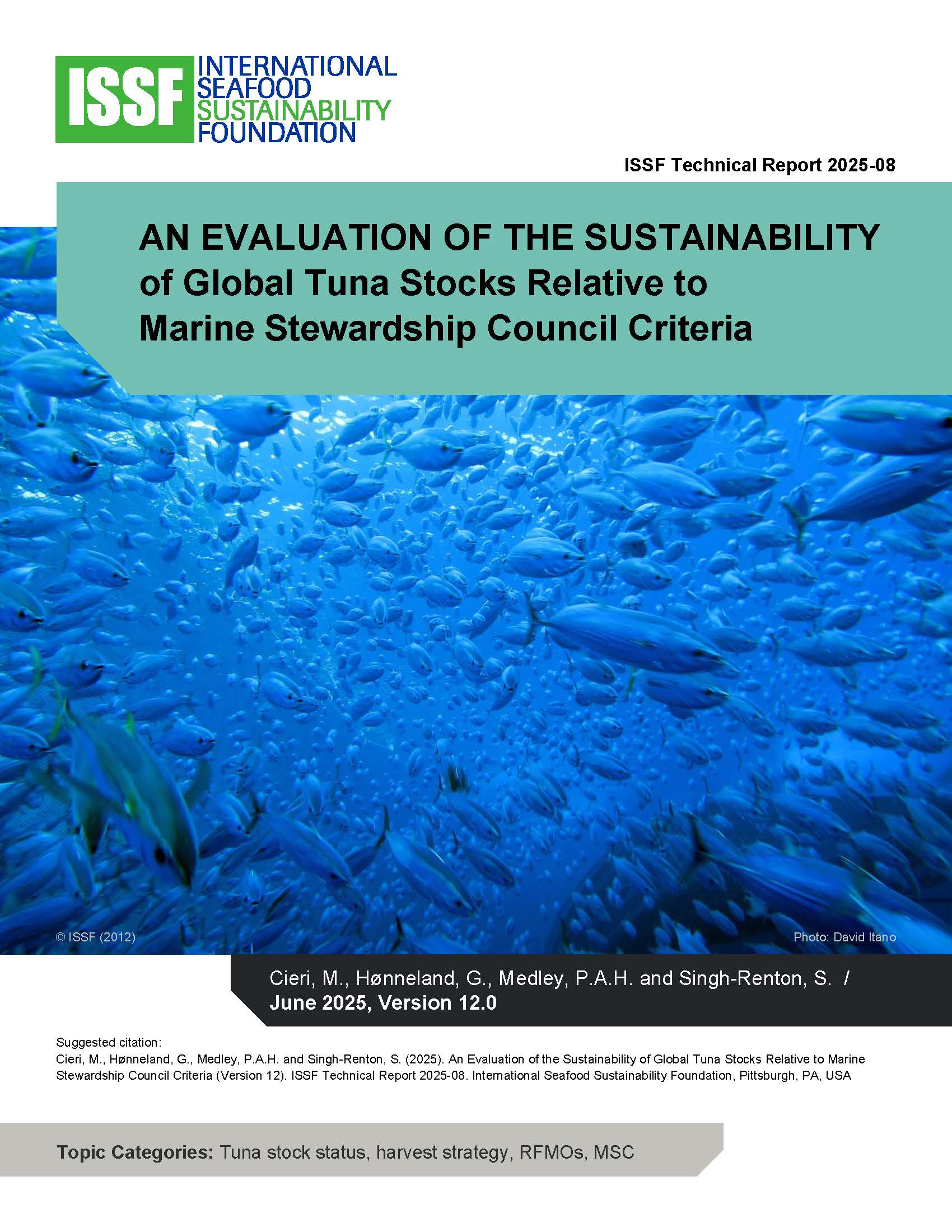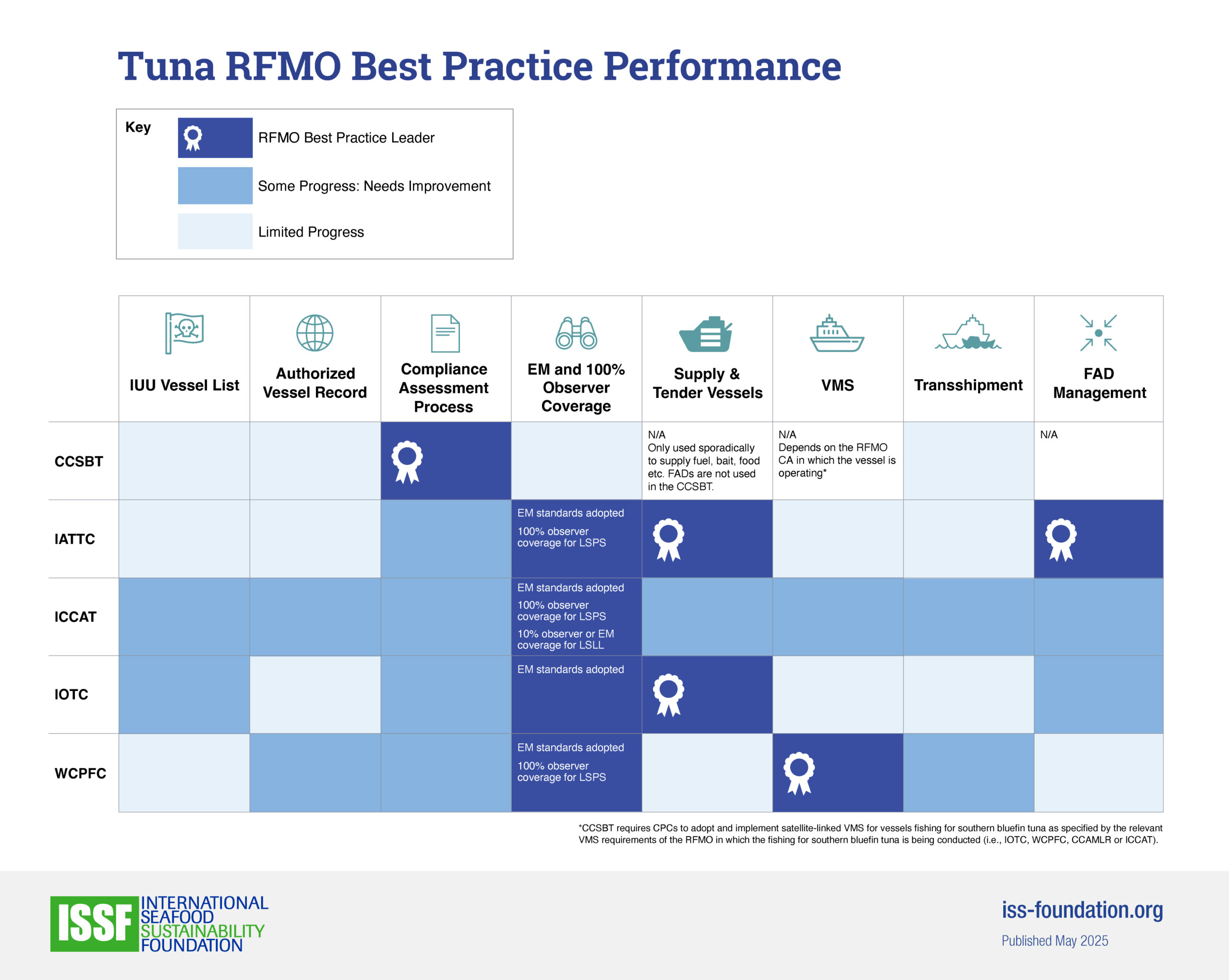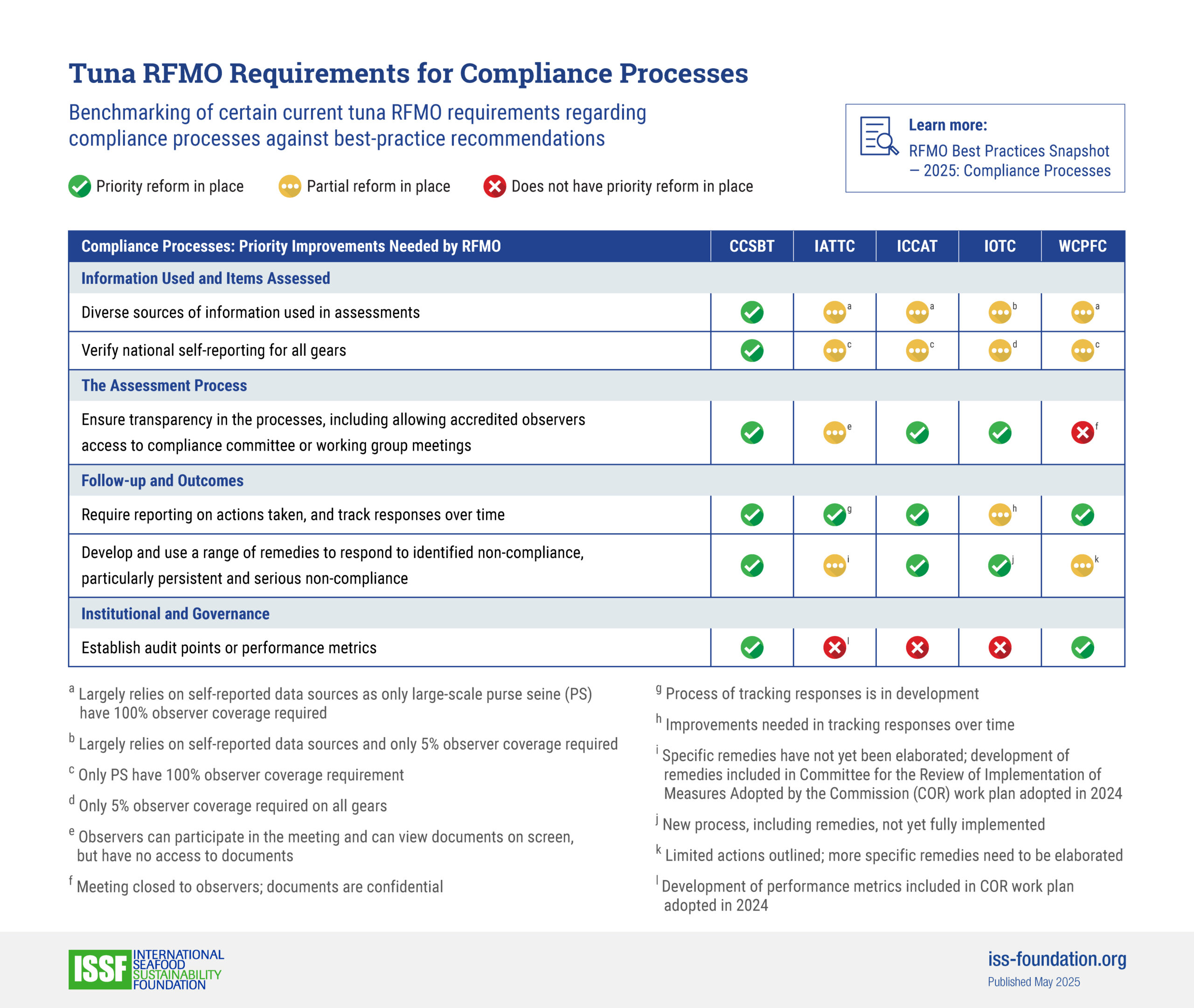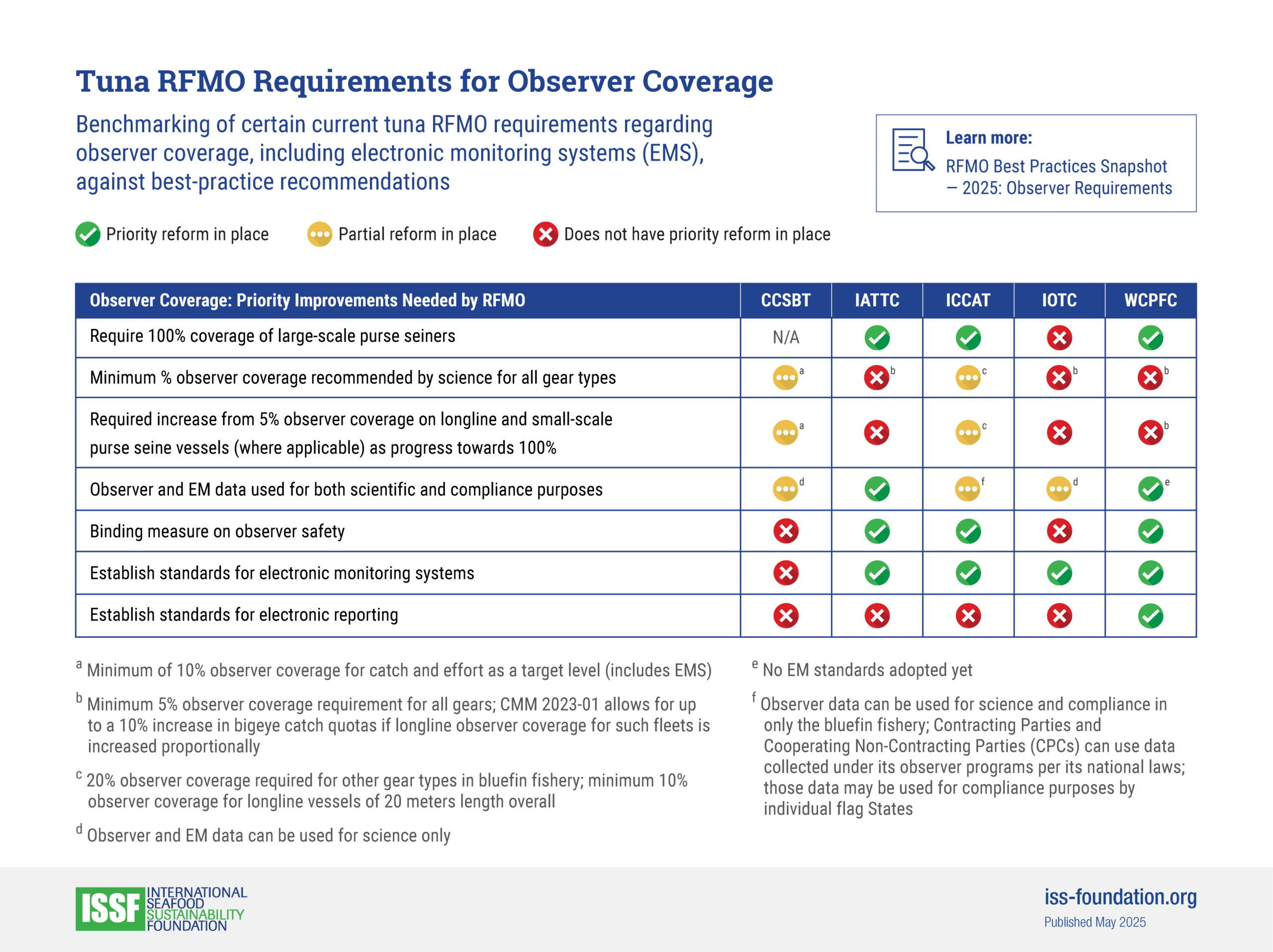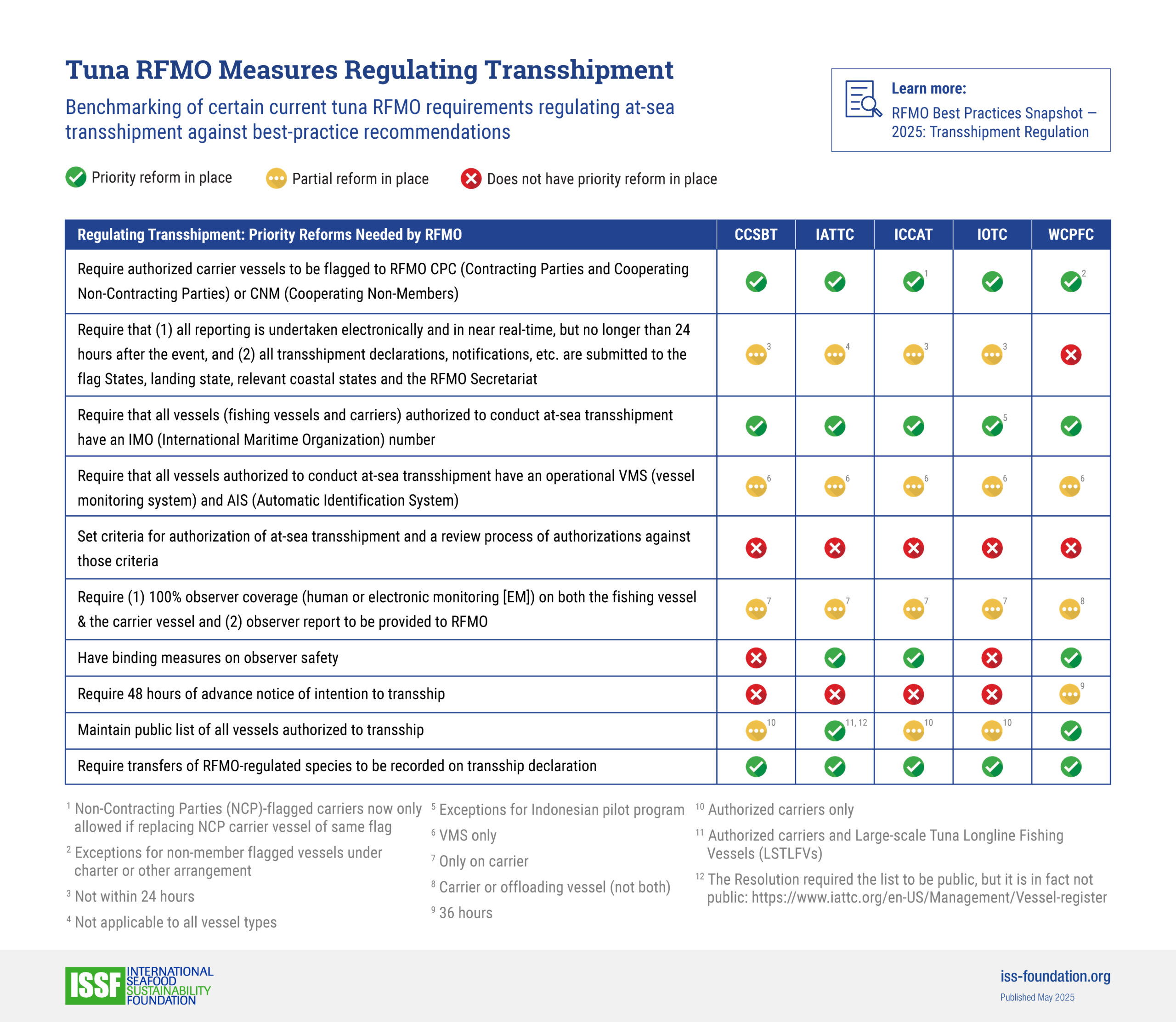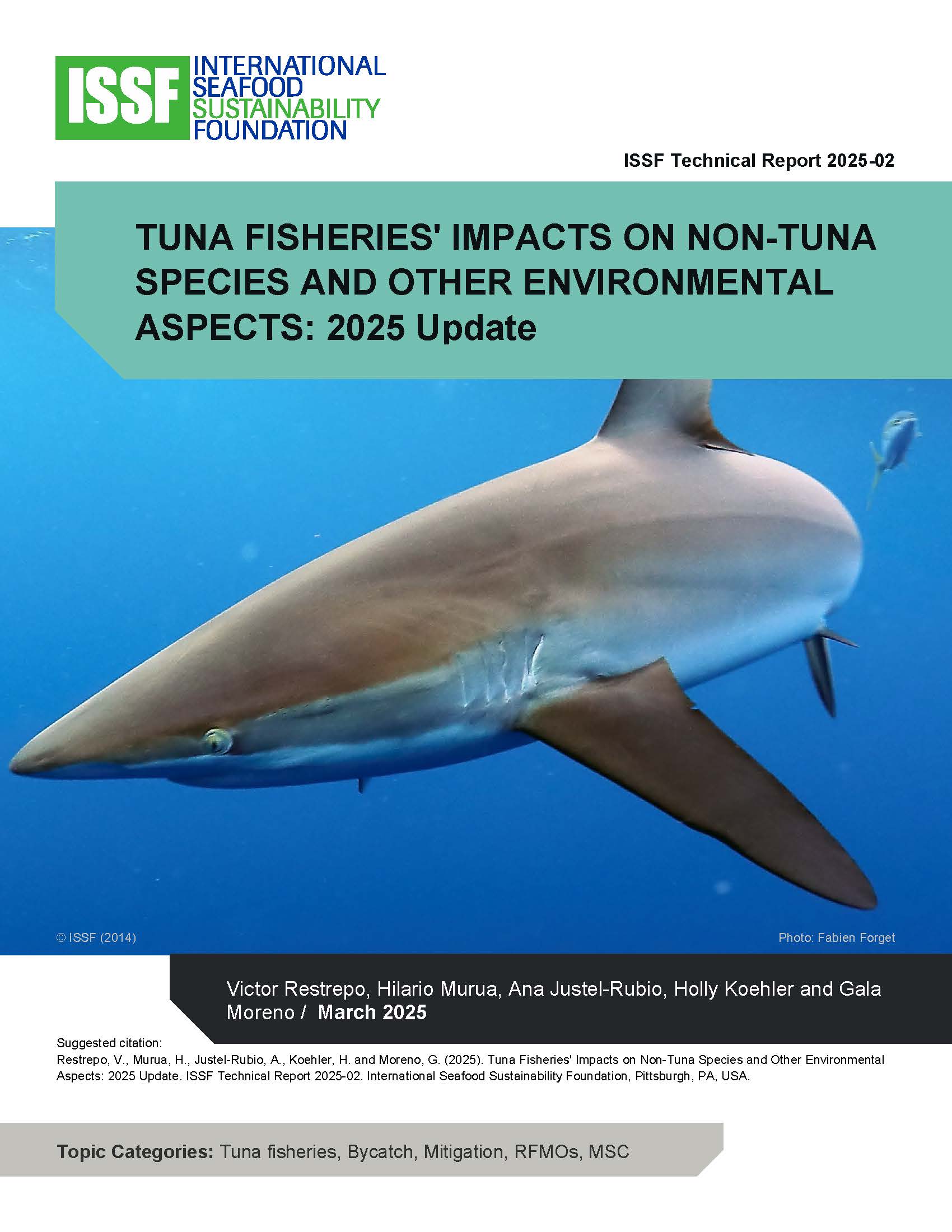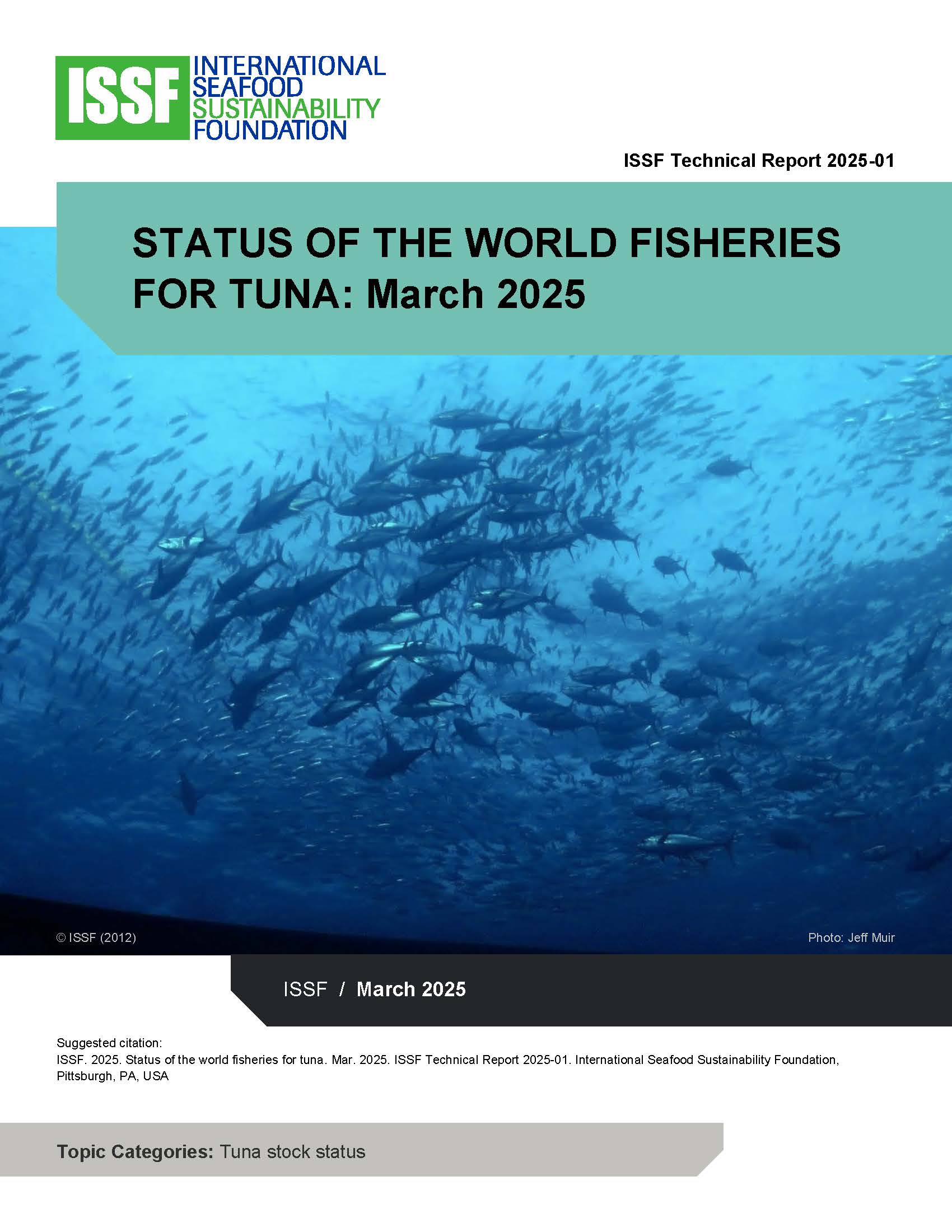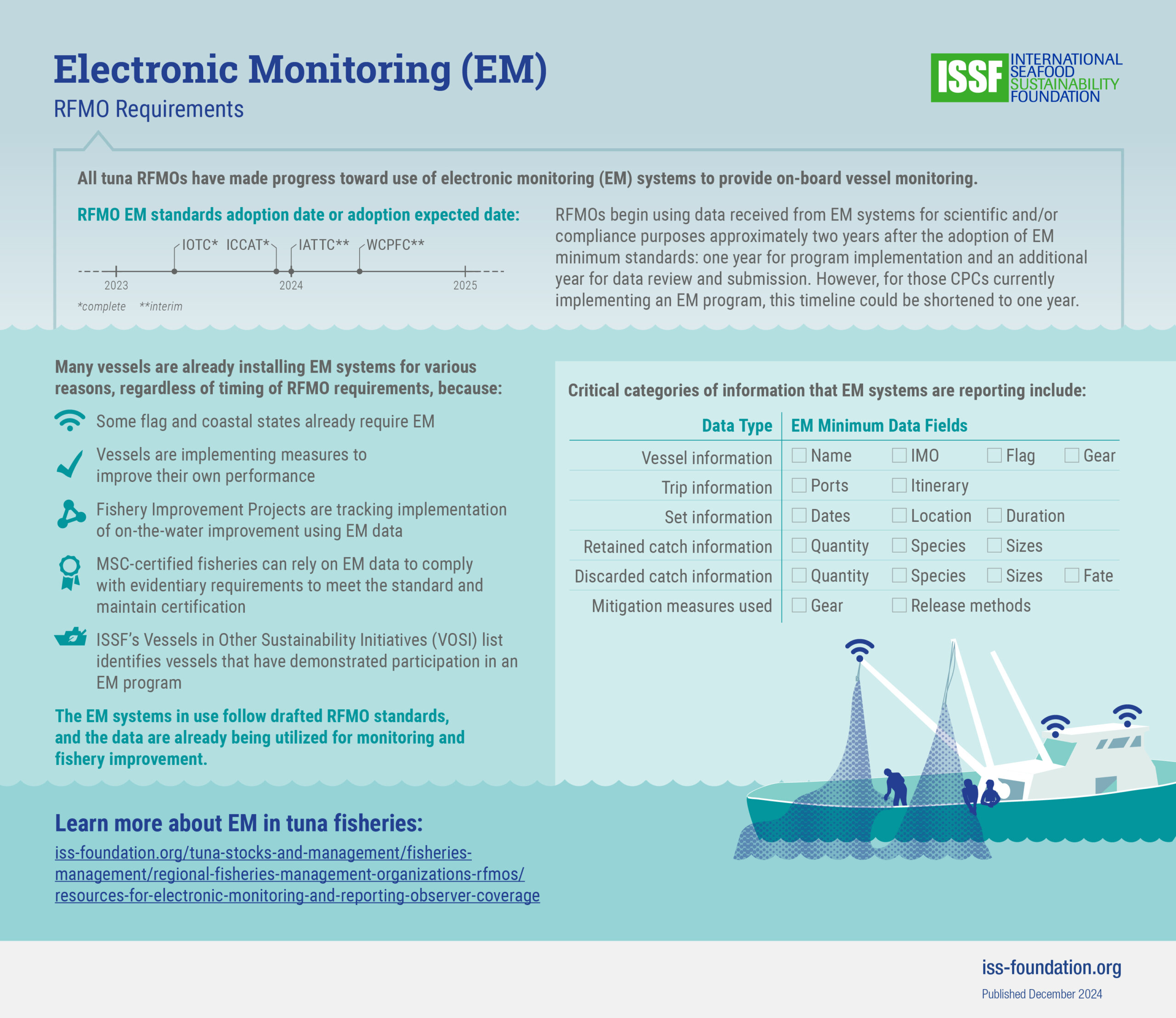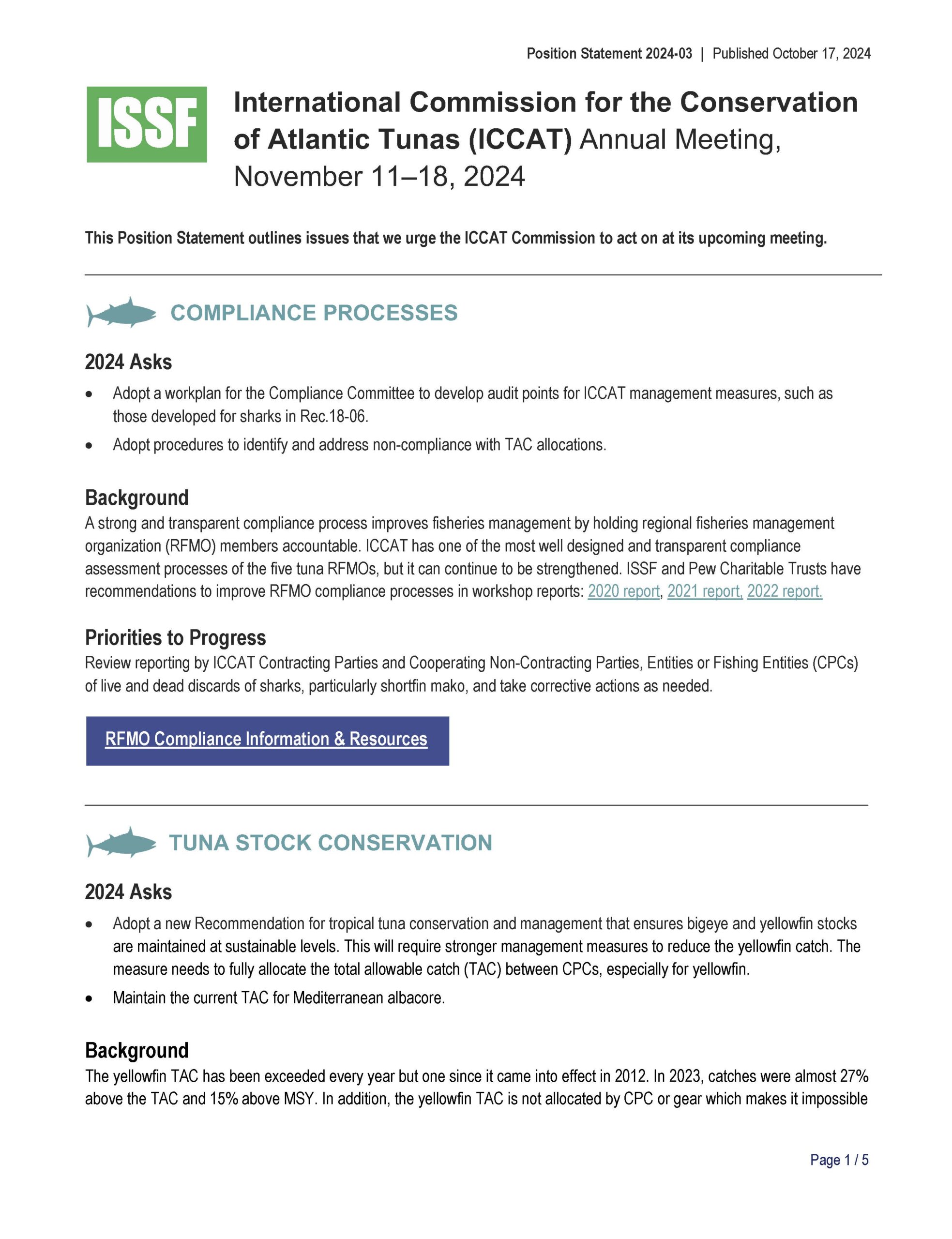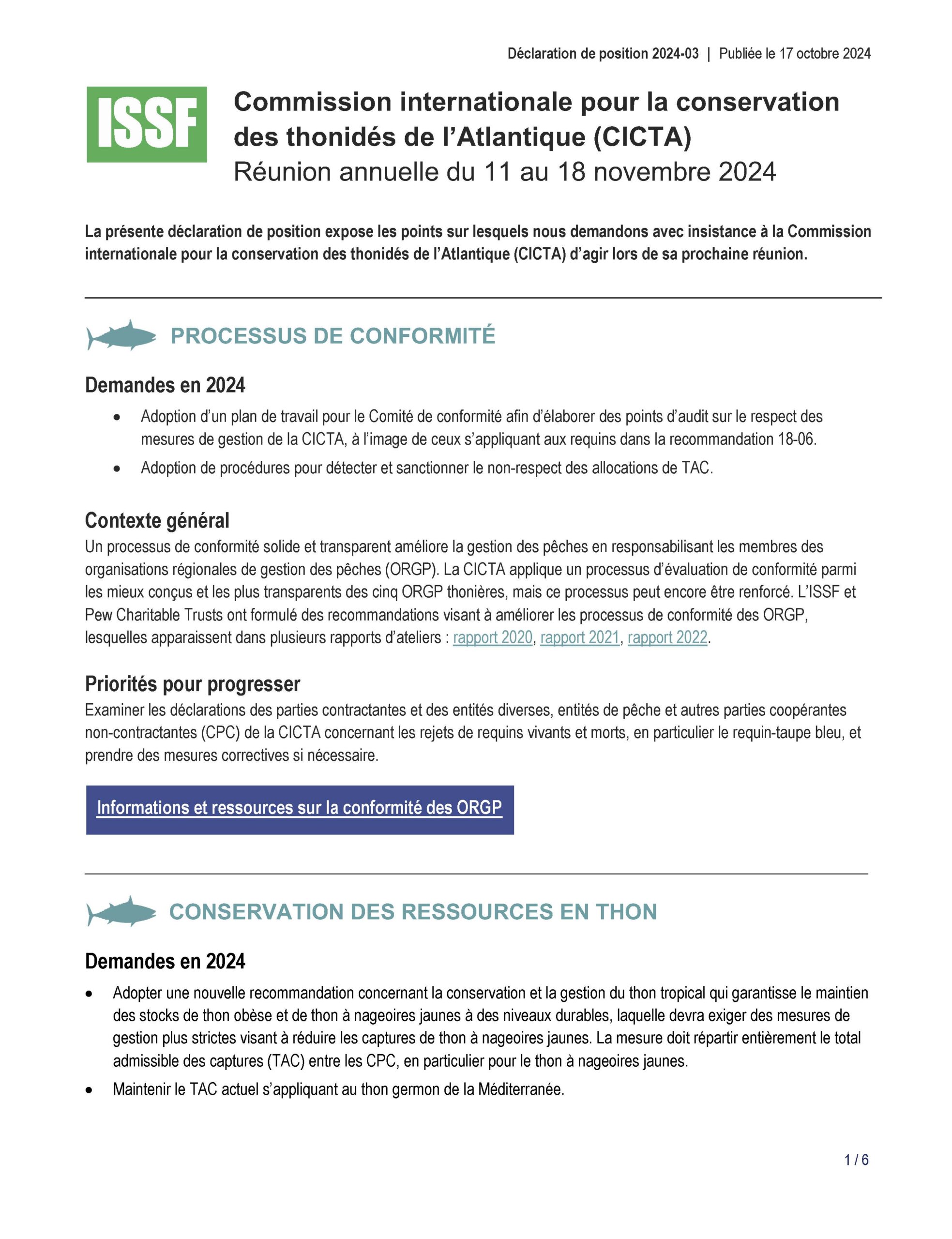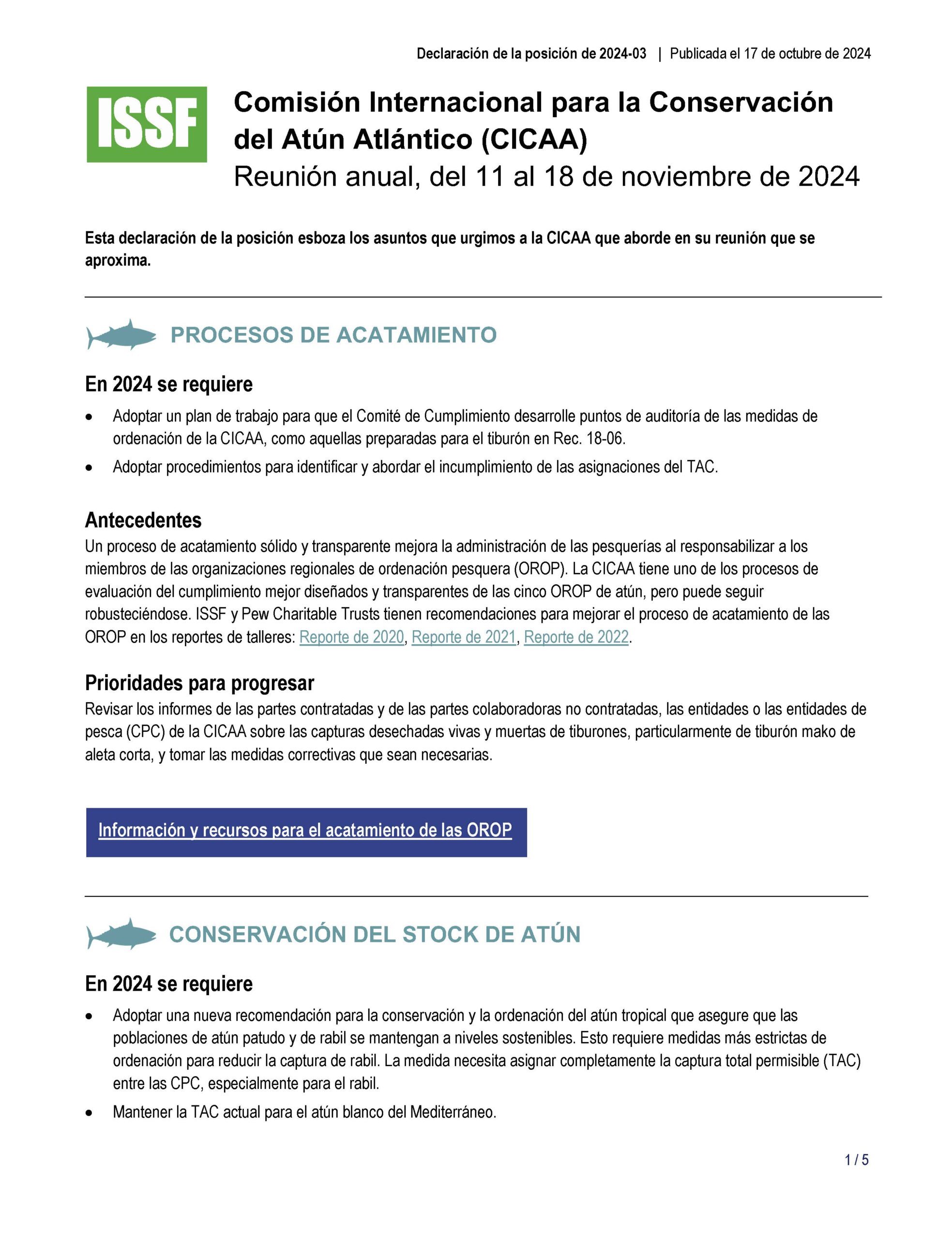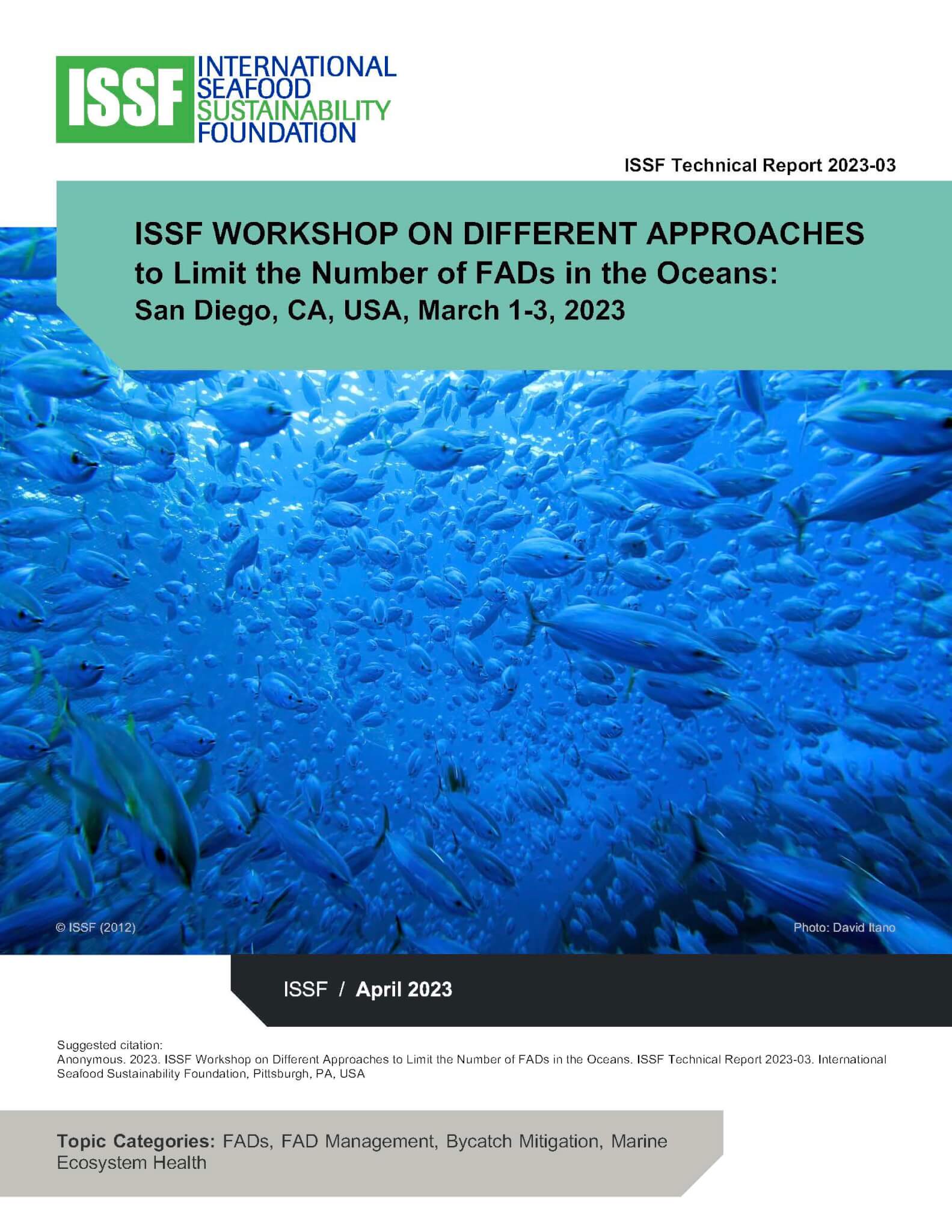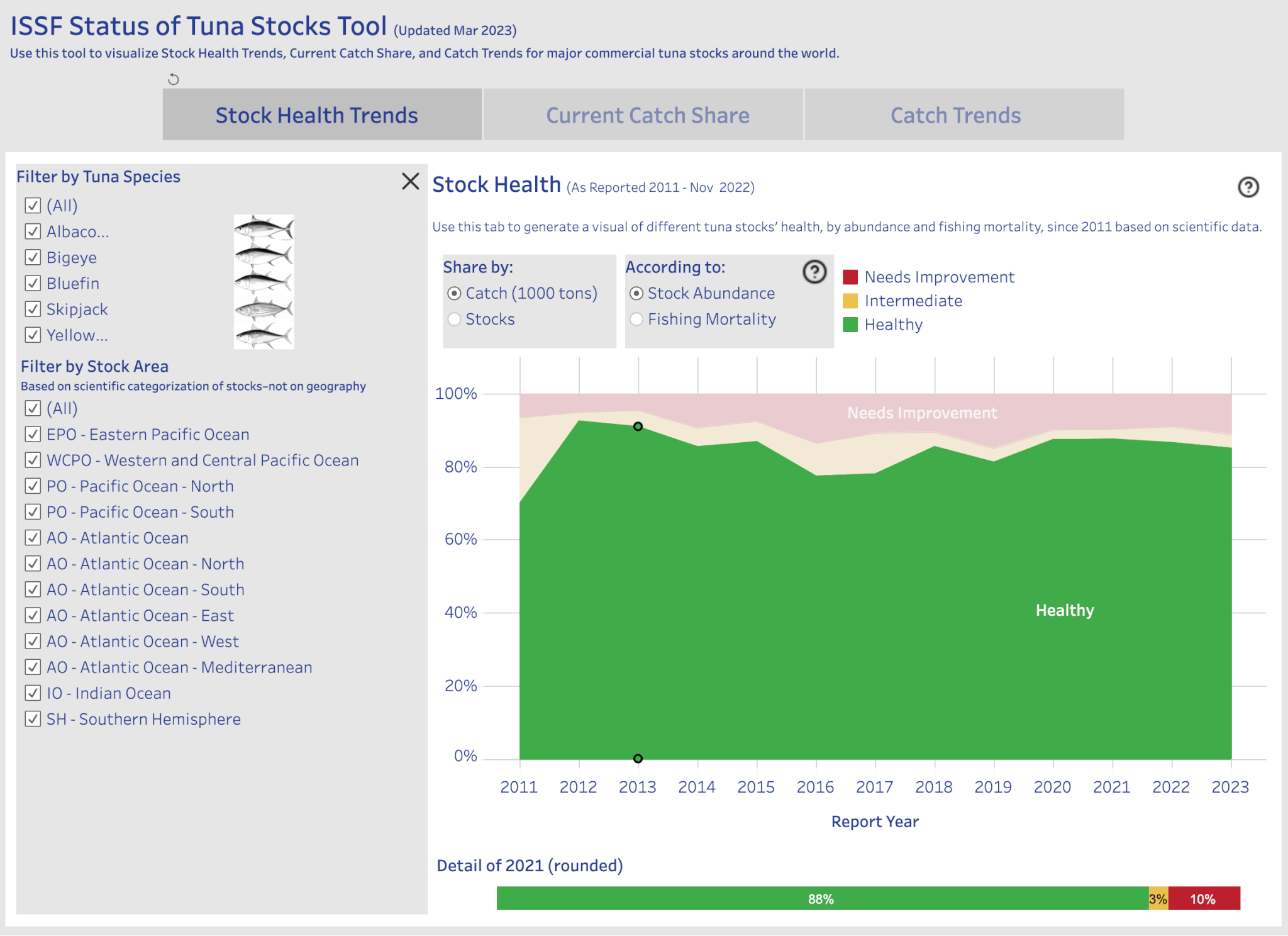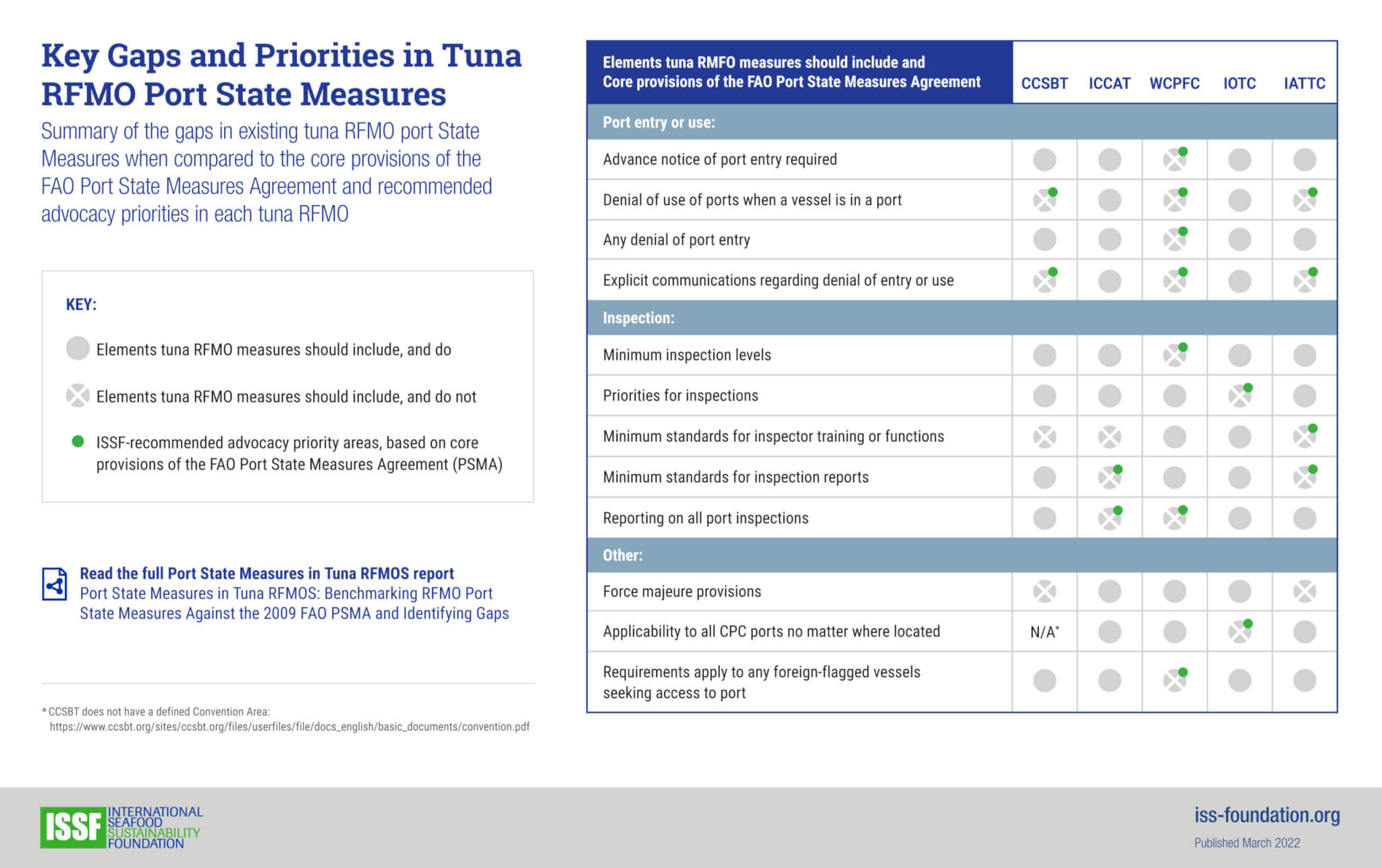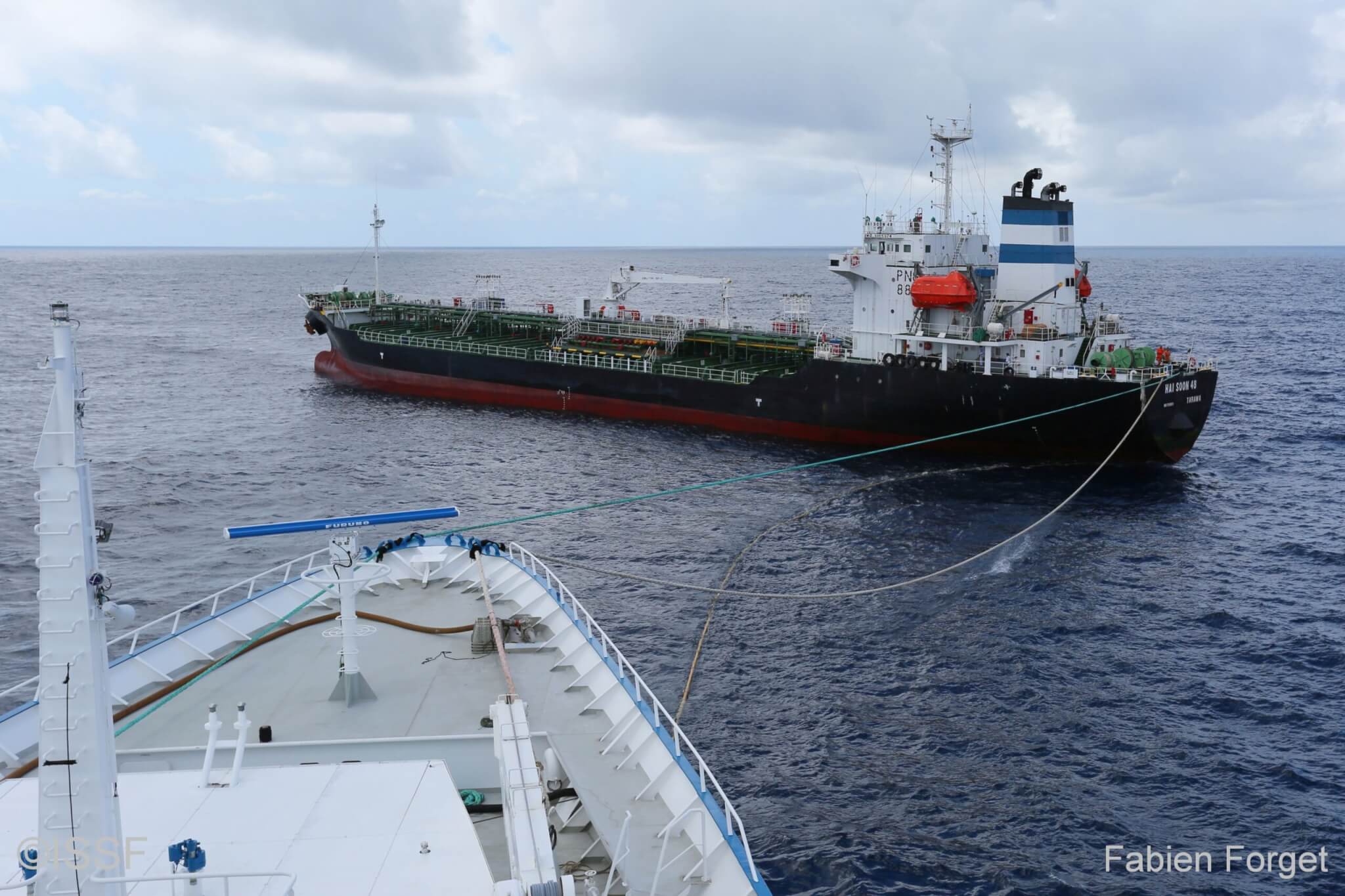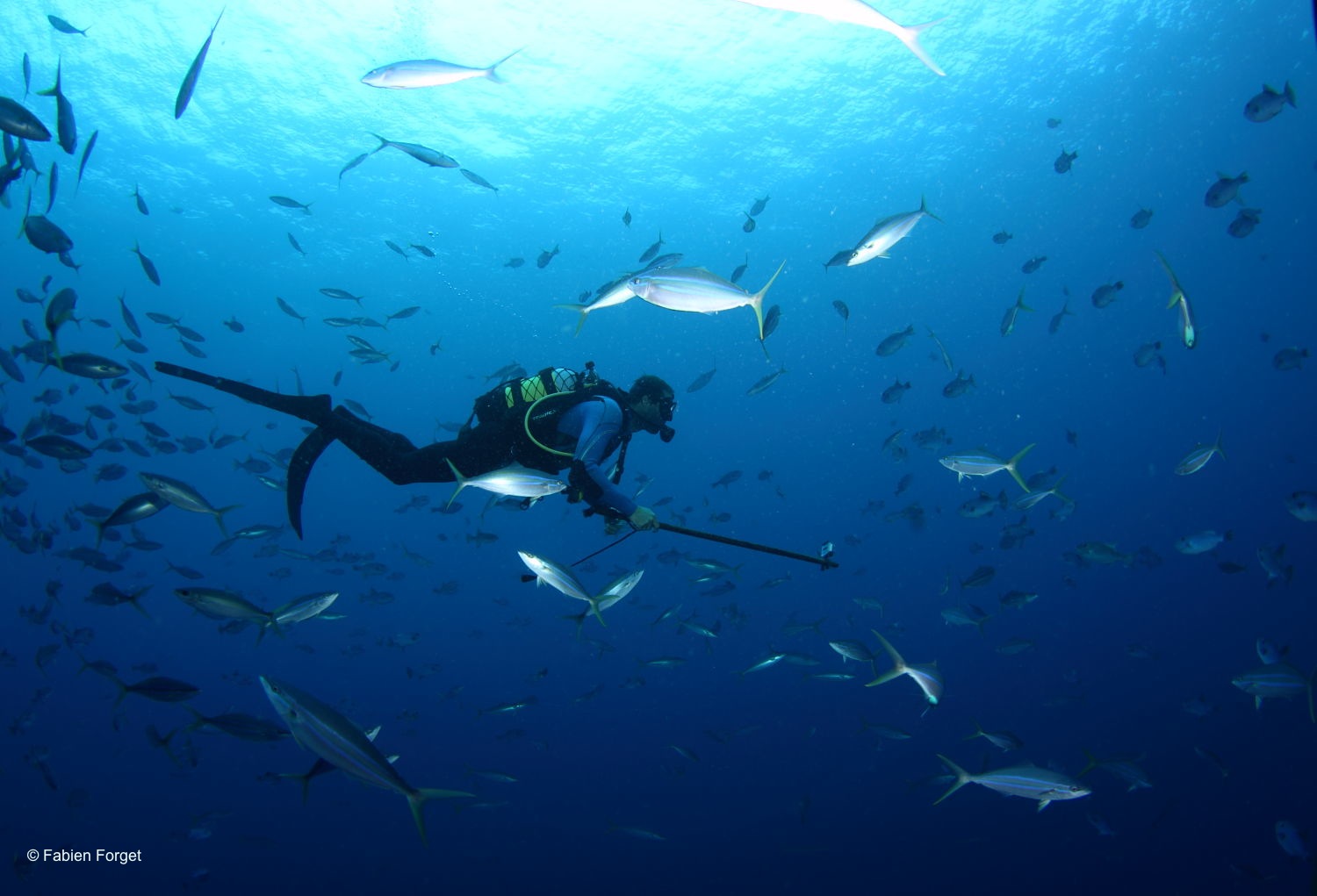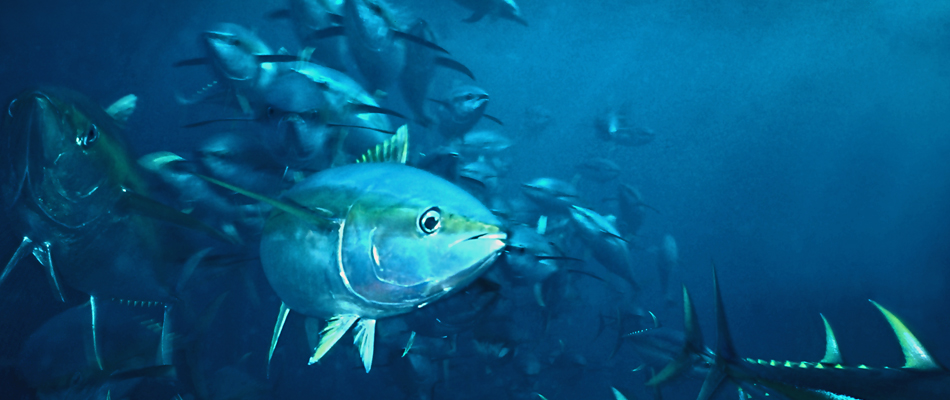
International Commission for the Conservation of Atlantic Tunas (ICCAT)
The International Commission for the Conservation of Atlantic Tunas (ICCAT) is governed by the ICCAT Convention and is responsible for the management of tuna and tuna-like species in the Atlantic Ocean and adjacent seas.
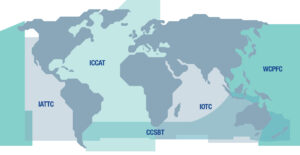
Established in 1969, ICCAT is open to any government that is a member of the United Nations or any specialized agency of the United Nations. Each member government can be represented by up to three commissioners.
RFMO Progress
In our annual report, Science Leads the Way, we summarize tuna RFMO sustainability successes in 2024.
Stock Status & Management Measures
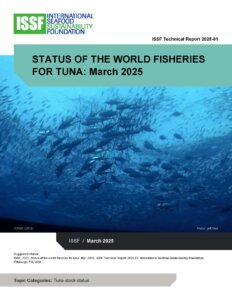
- ISSF benchmarks the tuna-fishery policies of ICCAT and other tuna RFMOs to a series of best practices we document in reports and “snapshots.”
- We also issue detailed position statements for each RFMO to help guide decision-making at their annual meetings, which ISSF scientists and policy experts often attend.
- In addition, we produce a “Status of the Stocks” report, which summarizes and rates the status and management of 23 major commercial tuna stocks, and an “Interactive Stock Status and Catch” tool.
- Our report ISSF 2025-02: Tuna Fisheries’ Impacts on Non-Tuna Species and Other Environmental Aspects: 2025 Update* examines the effects of different tuna-fishing methods, summarizing each RFMO’s related management measures for protecting both non-tuna and Endangered, Threatened, and Protected (ETP) species.
ICCAT OVERVIEW
See a list of nations that are members of ICCAT.
Preamble: “[members]… to co-operate in maintaining the populations of these fishes at levels which will permit the maximum sustainable catch for food and other purposes.”
Article VIII: “The Commission may, on the basis of scientific evidence, make recommendations designed to maintain the populations of tuna and tuna-like fishes that may be taken in the Convention area at levels which will permit the maximum sustainable catch.”
- Swordfish
- Marlins
- Sharks
- Sea turtles
- Seabirds
Open to accession by any member of the United Nations.
The Commission is responsible for making scientifically based recommendations designed to maintain the populations of tunas and tuna-like species at levels of abundance that will permit maximum sustainable yields.
Each year, ICCAT meets to receive scientific advice from its Standing Committee on Research and Statistics (SCRS), which it uses to formulate management recommendations. SCRS first presents a report of stock status along with options for achieving certain goals. The appropriate panel may then make a recommendation to ICCAT for consideration. ICCAT can accept, reject or modify the recommendation. Management decisions are binding on the members, unless they object.
The ICCAT Convention pre-dates UNCLOS and UNFSA; there is no explicit mention in the Convention about the Precautionary Approach or ecosystem considerations. However, the Convention requires that the Commission study other species of fish exploited in Atlantic tuna fisheries as long as they are not under investigation by another international fishery organization.
The Standing Committee on Research and Statistics (SCRS), composed of representatives from each Commission member, is responsible for all scientific work and providing scientific advice on management measures. The Secretariat plays primarily a facilitating role in organizing meetings, maintaining databases and making publications. The stock assessments are carried out by species-specific working groups of the SCRS.
Decisions taken by ICCAT are generally done by consensus. Conservation and management measures for tuna stocks are first elaborated by Panels (bigeye, yellowfin and skipjack are in Panel 1; bluefin tuna, northern albacore and Mediterranean albacore are in Panel 2; southern albacore are in Panel 3). If a vote is required in a Panel, a simple majority of the Panel members needs to be in favor in order for the proposal to move to the Commission. Once the Commission considers a Panel-approved proposal, and a vote is needed, a two-thirds majority of Commission members is required for the proposal to be adopted (Note: other decisions that are not originated in Panels require a majority of Commission members). Decisions that are binding to Commission members are called “Recommendations”. There is a well-defined system for members to object to any management Recommendation approved, and any member that meets a particular schedule for lodging objections is not bound by the measure to which it has objected, i.e. there is an “opt out” clause for nations that do not want to be bound by the management measure.
ISSF CONTRIBUTIONS
RELATED RESOURCES
-
ICCAT Quick Links
ICCAT at a Glance
Established: 1969
Headquarters: Madrid, Spain
Area of Competence: Atlantic Ocean, including adjacent seas (e.g., Mediterranean, Caribbean)
Tuna Catches in ICCAT’s Region
Use our “Interactive Stock Status and Catch Tool” to visualize the current tuna catch — and catch trends over time — in the ICCAT region.
Download the data in different file formats, and generate custom graphics to share via email, X, or Facebook.
FIPs in ICCAT’s Region
Browse our Tuna FIPs list to find Fishery Improvement Projects in ICCAT’s ocean region — or any other tuna RFMO region.
